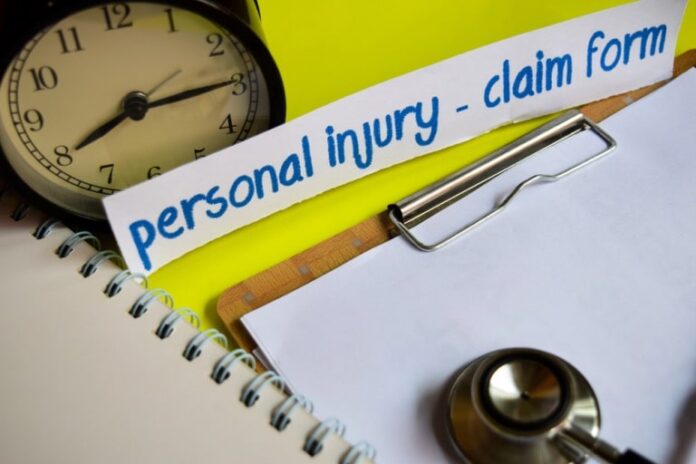If you bring a personal injury claim against a person or entity, that means you allege that they harmed you. If that happens, you’re seeking financial compensation. That might feel like it can help balance the scales following a person or entity hurting you physically, emotionally, psychologically, or some combination of these three.
However, no two personal injury claims look exactly the same. Many factors come into play that can impact how long the case might last. We’ll talk about some of those in the following article.
Your Injury’s Severity
You must always know about the time your state allows you to file a claim post-injury. For instance, many states feel that filing claims within two years post-accident gives you adequate time.
However, what about instances where a person or entity harmed you, and you’re in a coma for months or years? Most states will view that as an exception. The two-year clock starts ticking after you wake up and regain control of your faculties.
Your injury’s severity often plays a part when looking at how long a personal injury claim might take to resolve itself. Sometimes, directly after an accident or incident that harmed you, you might not know an injury’s severity. Even the best doctors may not know the full damage immediately afterward.
You might need to take some time to process what happened and see how much the accident or incident impaired you. Only once you have fully determined the damage can you move forward with your personal injury claim.
Until you know the total damage, and whether you might eventually recover or sustained permanent injuries, you can’t put a price tag on what you feel the responsible party should pay you.
Finding the Right Lawyer
You also probably can’t move forward with your personal injury lawsuit until you find the proper representation. It might seem like you can find a lawyer or law firm with no issues. Just because you can locate a dozen lawyers in your area with a simple Google search doesn’t necessarily mean you’ve found any credible ones, though.
You need to find a law firm or attorney who makes you feel confident in their abilities. That might involve taking some time to do your research.
You may look at reviews and speak to multiple lawyers to determine who has the best chance of success. While you’re doing these things, your lawsuit can’t move forward, and you’re probably aware you must work within the statute of limitations your state imposes for such cases.
The Accident Type
Let’s say you sustained an injury or became ill, and you feel you can blame some person or entity. Hiring a lawyer and suing the responsible party might seem relatively easy and straightforward. However, that may not prove to be the case.
Once your lawyer tells the other party that you’re suing them, they must hire an attorney if they don’t have one already. At that point, the discovery phase begins. While that stage might not last long, it can also last for weeks or months. That all depends on what happened.
With accidents that have considerable complexity or ones that might have multiple guilty or negligent parties, you can expect a long, complicated discovery process. Think about a car accident that harmed you, for instance.
If you’re looking at a multiple-car pile-up, you might have half a dozen different drivers, all of whom claim something different happened. You can just imagine how challenging it becomes trying to get to the truth.
Who Really Caused Your Injury or Illness?
Your personal injury claim might also take a longer time working its way through the court system if it’s not immediately clear who caused your injury or illness. Maybe some product harmed you. If so, you’d presumably sue the company.
What if only one quality control inspector let the defective product reach store shelves, though? Maybe you must sue that particular individual rather than the whole business.
In that scenario, perhaps there’s some entity that stands as an additional line of defense against harmful products ever making it to market. Maybe they failed more than the manufacturer did.
Once you start to think about the complications of these cases, you can easily see how it might take time to truly determine who caused your illness or injury.
In instances where you’re bringing a personal injury lawsuit against a person or entity who caused a loved one’s death, you’re probably looking at a still more nuanced lawsuit. With potentially millions of dollars on the line in a wrongful death suit, you must make sure you’re accusing the right party.
The Settlement Negotiations
The settlement negotiations with personal injury cases can also slow down the proceedings significantly. These usually happen at some point after the discovery process begins.
Maybe when the individual or entity you’re suing starts doing some research, they realize there’s overwhelming evidence that they harmed you, and they feel you’ll likely win your court case. Even if they don’t feel that way, maybe their lawyer tells them settling makes sense.
Now, you’ll likely get into a back and forth with the defendant’s lawyer and yours. They might start with a lowball offer that you feel doesn’t sufficiently pay you back for the injury you sustained or the illness you experienced. You must propose a counteroffer through your lawyer.
If you’re lucky, this process won’t last long, and you’ll land on a number with the defendant that satisfies you. You might never reach that point, though. In certain rare cases, you and the defendant can’t come to terms. If that happens, you must battle it out in court, and that will take even longer.
You must remain patient and steadfast if you enter into a legal battle because a person or entity harmed you. If you feel certain you deserve compensation and have a competent lawyer, you should eventually get the money you are seeking.
